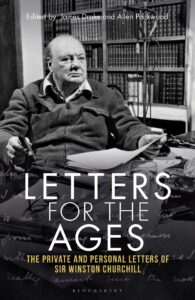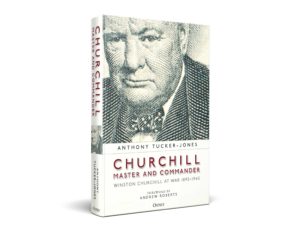Finest Hour 162
Books, Arts & Curiosities – Churchill’s South Africa

Winston Churchill, Parliament Square, London © Sue Lowry & Magellan PR
February 18, 2015
Finest Hour 162, Spring 2014
Page 48
Churchill’s South Africa: Travels During the Anglo-Boer War, by Chris Schoeman. Cape Town: Random House Struik/Zebra Press, 224 pages, $30. Kindle edition $8.79, member price $24.
English-born Chris Schoeman holds degrees in history from the University of Port Elizabeth, South Africa and Colorado State University, has written several books related to South Africa and the Anglo-Boer War, including Boer Boy: Memoirs of an Anglo-Boer War Youth (2010) and Brothers in Arms: Hollanders in the Anglo-Boer War (2012). The present work is a critical reevaluation of Churchill’s Anglo-Boer War activities in 1899-1900, constructed so as to measure Churchill’s written accounts against those of other contemporary participants from both sides of the conflict.
Churchill in his youth was a British cavalry officer who doubled as a war correspondent, reporting for newspapers such as the Daily Telegraph and Morning Post in the twilight of Queen Victoria’s reign. He also wrote books based upon his war despatches with the intent to win personal fame and fortune. His first two efforts, The Story of the Malakand Field Force (1898) and The River War (1899), which chronicle British campaigns in India and the Sudan, as well as a novel of political intrigue, Savrola (1899), brought modest success. However, it was his adventures during the war in South Africa that projected him upon the world stage, particularly in launching his celebrated career in the British Parliament following the “Khaki Election” of 1900.
Schoeman is well versed in South African history and geography, and while few maps are included, there is a lavish array of contemporary black and white photographs juxtaposed with modern color photographs, many taken by the author. Each relatively compact chapter starts with an epigrammatic extract from one of Churchill’s relevant published works: London to Ladysmith via Pretoria (1900), Ian Hamilton’s March (1900), and My Early Life: A Roving Commission (1930). These and other Churchill citations are supplemented and sometimes contradicted by other contemporary accounts, ranging from British officers and civilians to various Boer reminiscences.

2025 International Churchill Conference
Schoeman’s writing is generally accurate. The problem, as with the foregoing book by Farmelo, is interpretation. Churchill allegedly said, “I am easily satisfied with the best.” Schoeman is easily satisfied with the worst—the worst possible view of Churchill on any given occasion.
A prime example is the matter of Alan Bruce, a rival pressured by Churchill and other officers to resign from the army. Bruce’s angry father accused Churchill of homosexual conduct (then a crime), though he quickly backed down and paid damages when threatened with a libel suit. This is well documented in the official biography, which dismisses the homosexuality charge but admits that Churchill’s actions were “injudicious.”
But Schoeman cites Ted Morgan’s Churchill: The Rise to Failure (1983), which judges Churchill’s behavior as “shameful.” Though Morgan labeled the homosexual charge “preposterous,” Schoeman doesn’t mention that. In fact, he goes one step further, citing a 1990 homosexual publication with an alleged confession Churchill made to Somerset Maugham of an affair with actor-composer Ivor Novello.
Overall, Schoeman tries to demonstrate that Churchill’s accounts were dishonest or otherwise exaggerated, though many of the issues raised are inherently ambiguous and irresolvable. Concerning which Boer soldier captured Churchill, Schoeman takes pains to show it could not have been South African statesman Louis Botha, though this has been known for years.
Churchill’s offer of parole to the Boers in return for his release, not mentioned in his writings; conflicting versions of Churchill’s escape (fellow officer Aylmer Haldane said WSC left his fellow prisoners in the lurch); and the authenticity of the famous Boer wanted poster offering £25 for Churchill’s recapture, are all given ink. One hopes that the author is being tongue-in-cheek when he wonders if Churchill paid for the bottle of peach preserves he removed from the home of the Boer Weilbach Family in the town of Heilbron (177).
Churchill’s South Africa is an aesthetically attractive if pint-sized coffee table book that spares no effort in raising questions about Churchill’s honor and veracity, with snide and often irrelevant criticism. Churchill wrote in his first book that nothing was “more exhilarating as to be shot at without result.” In the 21st century, nearly fifty years after his death, no historical figure is a larger target than Sir Winston, as a global flock of writers figuratively blaze away—with the same exhilarating lack of result.
Subscribe
WANT MORE?
Get the Churchill Bulletin delivered to your inbox once a month.






